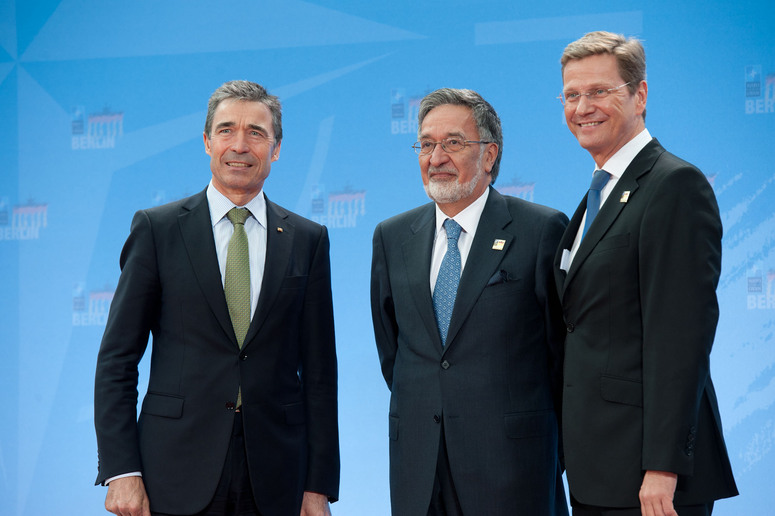Afghanistan and NATO put theory into practice in their Enduring Partnership
At the meeting of Foreign Ministers in Berlin today, NATO and Afghanistan began to chart the path of how to take their Partnership forward, throughout the Transition process and beyond 2014.

Today in Berlin, Afghanistan and the Foreign Ministers of the 48 nations which contribute to ISAF discussed the Transition process, and their shared aim of the Afghan forces being in the lead country-wide by the end of 2014. This year, NATO-ISAF will begin the process of handing over lead security for Afghanistan to the Afghans. As Afghans do more, so the role of ISAF will gradually evolve to one of increased support and training.
However, NATO’s engagement and cooperation with Afghanistan will not end with ISAF’s mission. NATO and the Afghan government have agreed on an Enduring Partnership, as a framework on which NATO will build its long-term engagement with Afghanistan. The Enduring Partnership is intended to provide sustained practical support to Afghanistan as it assumes full responsibility for its own security and rebuilds its security institutions through the Transition process and beyond 2014.
“The aim of the Enduring Partnership is to help Afghanistan beyond the date when our combat role ends”, stressed the NATO Secretary General Anders Fogh Rasmussen.
The Enduring Partnership was on the agenda of the meeting in Berlin today. Afghan and NATO Foreign Ministers agreed on a set of initial activities and programmes to put this cooperation into practice. They also agreed to pursue a partnership dialogue in Kabul and Brussels which will define the scope and content of co-operation beyond 2012. The agreement in Berlin represents another step in the development of a robust partnership between Afghanistan and NATO.
“This sends a strong message that Afghanistan will one day stand on its own, but it will not be standing alone” said Rasmussen, during the opening remarks of his pre-Ministerial press conference.
